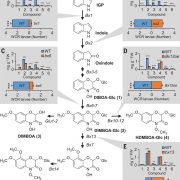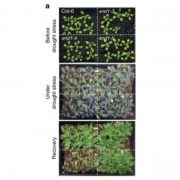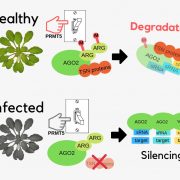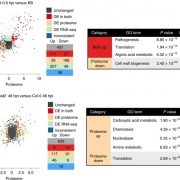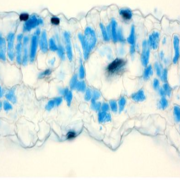Pathogen cyclic lipopeptide virulence factors promote disease by inducing membrane leakage
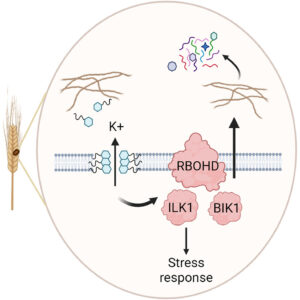 Pathogens deploy an array of molecules to create favorable conditions and promote infections in host plants. These molecules are well-known for suppressing host immunity, rendering them more susceptible. However, two recent reports suggest that some pathogen-produced virulence factors may also act independently of host immune suppression. Central to this are a class of molecules known as cyclic lipopeptides. In Cell Reports, Brauer et al. studied gramillin, secreted by the fungal pathogen Fusarium graminearum (causal agent of fusarium head blight), whereas in Nature Communications, Getzke and Wang et al. reported brassicapeptin A from the opportunistic bacterial pathogen Pseudomonas brassicacearum R401. Interestingly, both cyclic lipopeptides disrupt ionic balance in host plants through pore formation, with marginal suppression of host immunity. Specifically, gramillin induces reactive oxygen species (ROS) burst depending on host ILK1 and RBOHD genes but promotes disease independently of the major immune signaling pathways (such as jasmonic acid, salicylic acid, and pattern recognition receptors/PRRs). On the other hand, brassicapeptin A is salt-inducible and exhibits detrimental effects by interacting with salt in the environment, disturbing plant ion homeostasis. Together, these studies establish the multifaceted role of cyclic lipopeptides and their interactions with environmental stressors in pathogen success. (Summary by Arijit Mukherjee @ArijitM61745830) Cell Reports 10.1016/j.celrep.2024.114384, Nature Comms 10.1038/s41467-024-48517-5
Pathogens deploy an array of molecules to create favorable conditions and promote infections in host plants. These molecules are well-known for suppressing host immunity, rendering them more susceptible. However, two recent reports suggest that some pathogen-produced virulence factors may also act independently of host immune suppression. Central to this are a class of molecules known as cyclic lipopeptides. In Cell Reports, Brauer et al. studied gramillin, secreted by the fungal pathogen Fusarium graminearum (causal agent of fusarium head blight), whereas in Nature Communications, Getzke and Wang et al. reported brassicapeptin A from the opportunistic bacterial pathogen Pseudomonas brassicacearum R401. Interestingly, both cyclic lipopeptides disrupt ionic balance in host plants through pore formation, with marginal suppression of host immunity. Specifically, gramillin induces reactive oxygen species (ROS) burst depending on host ILK1 and RBOHD genes but promotes disease independently of the major immune signaling pathways (such as jasmonic acid, salicylic acid, and pattern recognition receptors/PRRs). On the other hand, brassicapeptin A is salt-inducible and exhibits detrimental effects by interacting with salt in the environment, disturbing plant ion homeostasis. Together, these studies establish the multifaceted role of cyclic lipopeptides and their interactions with environmental stressors in pathogen success. (Summary by Arijit Mukherjee @ArijitM61745830) Cell Reports 10.1016/j.celrep.2024.114384, Nature Comms 10.1038/s41467-024-48517-5


